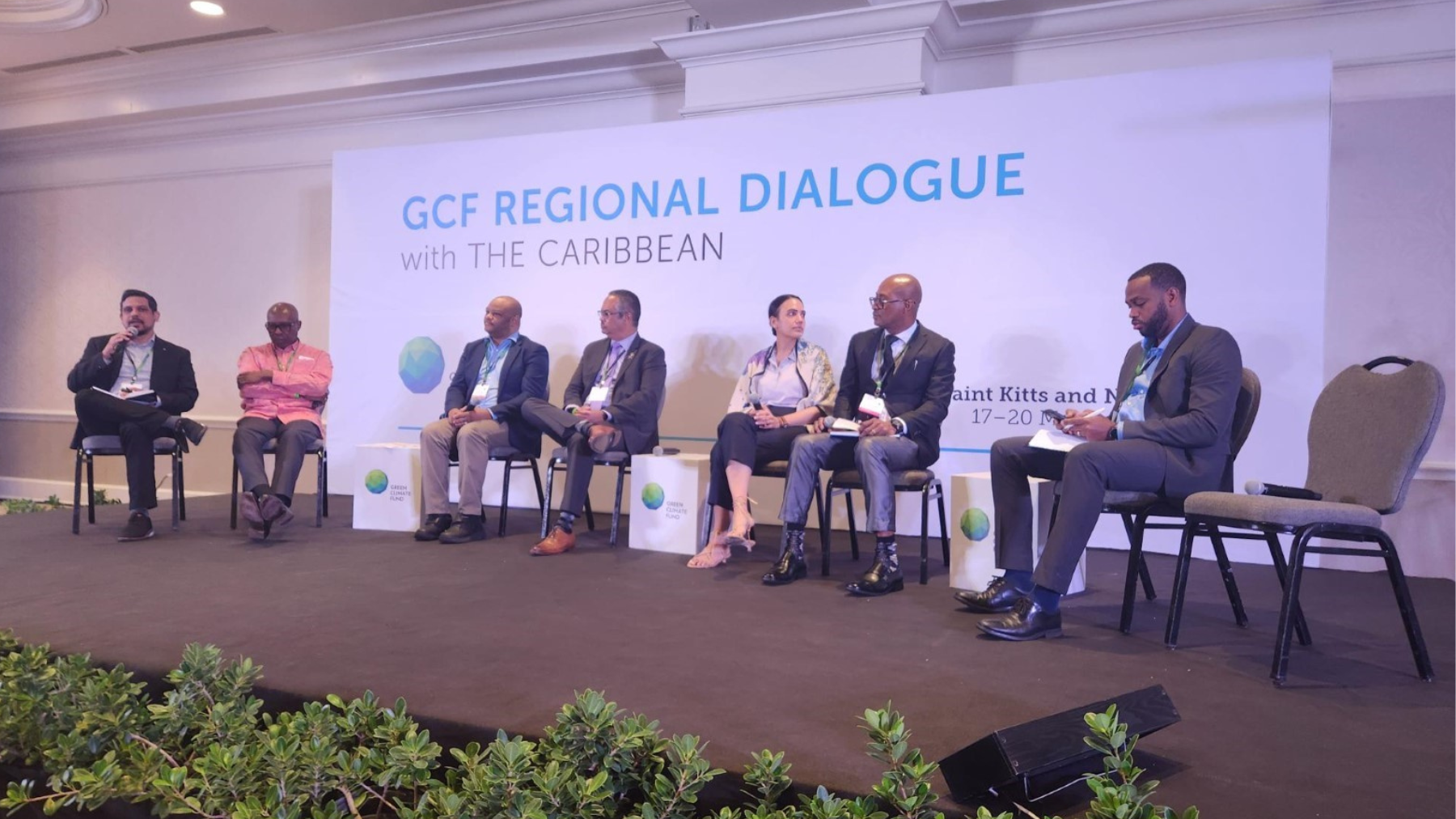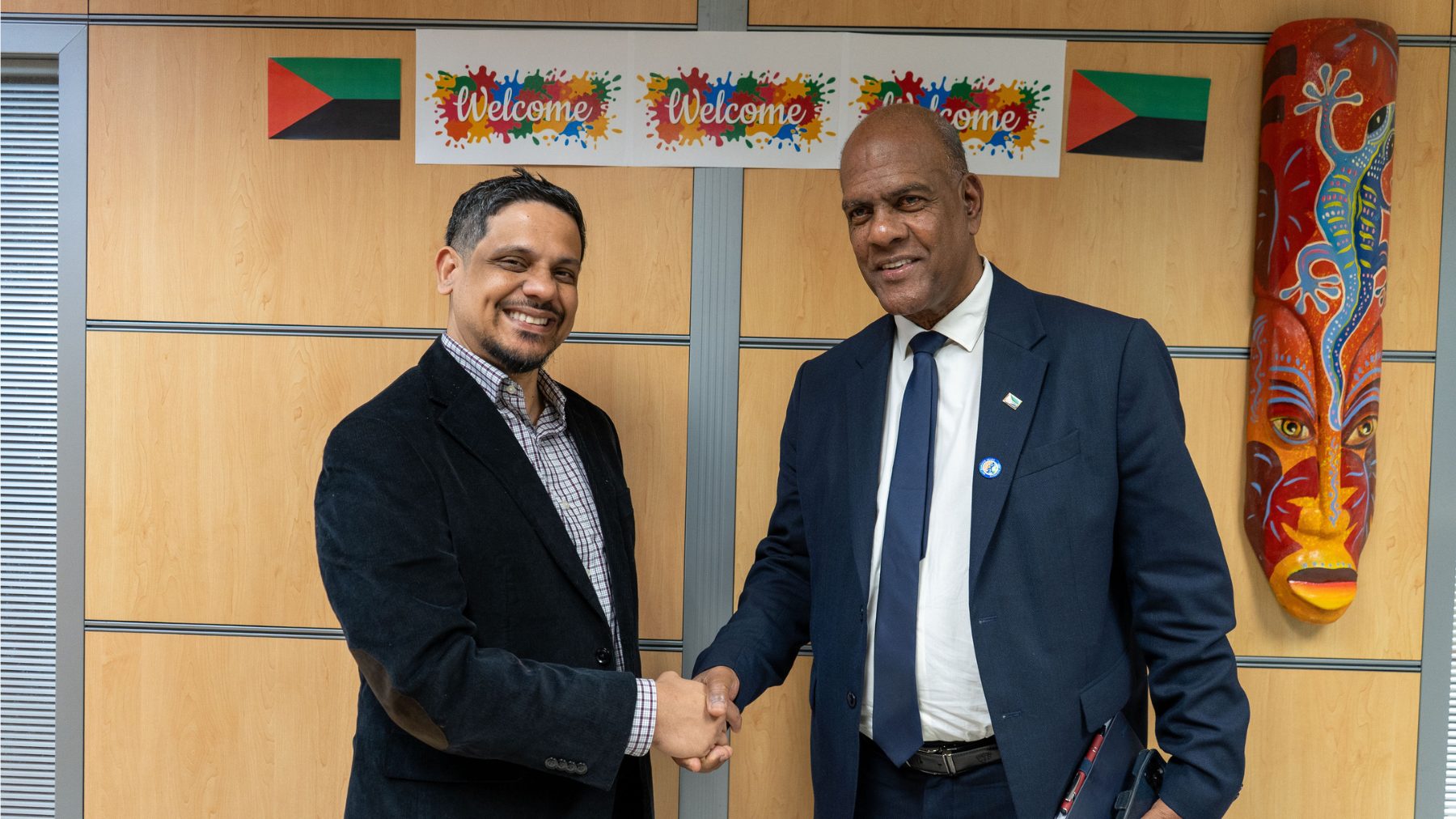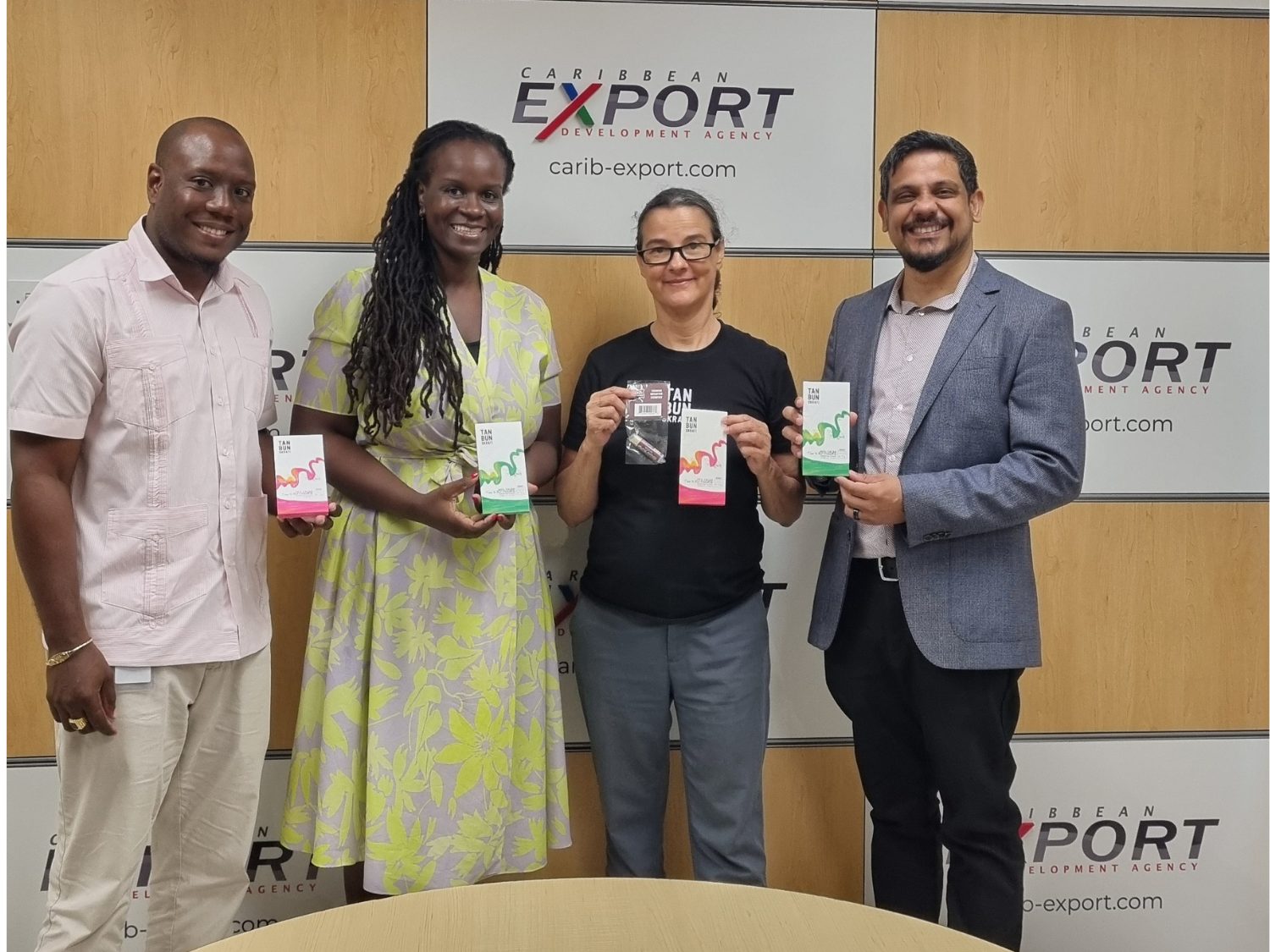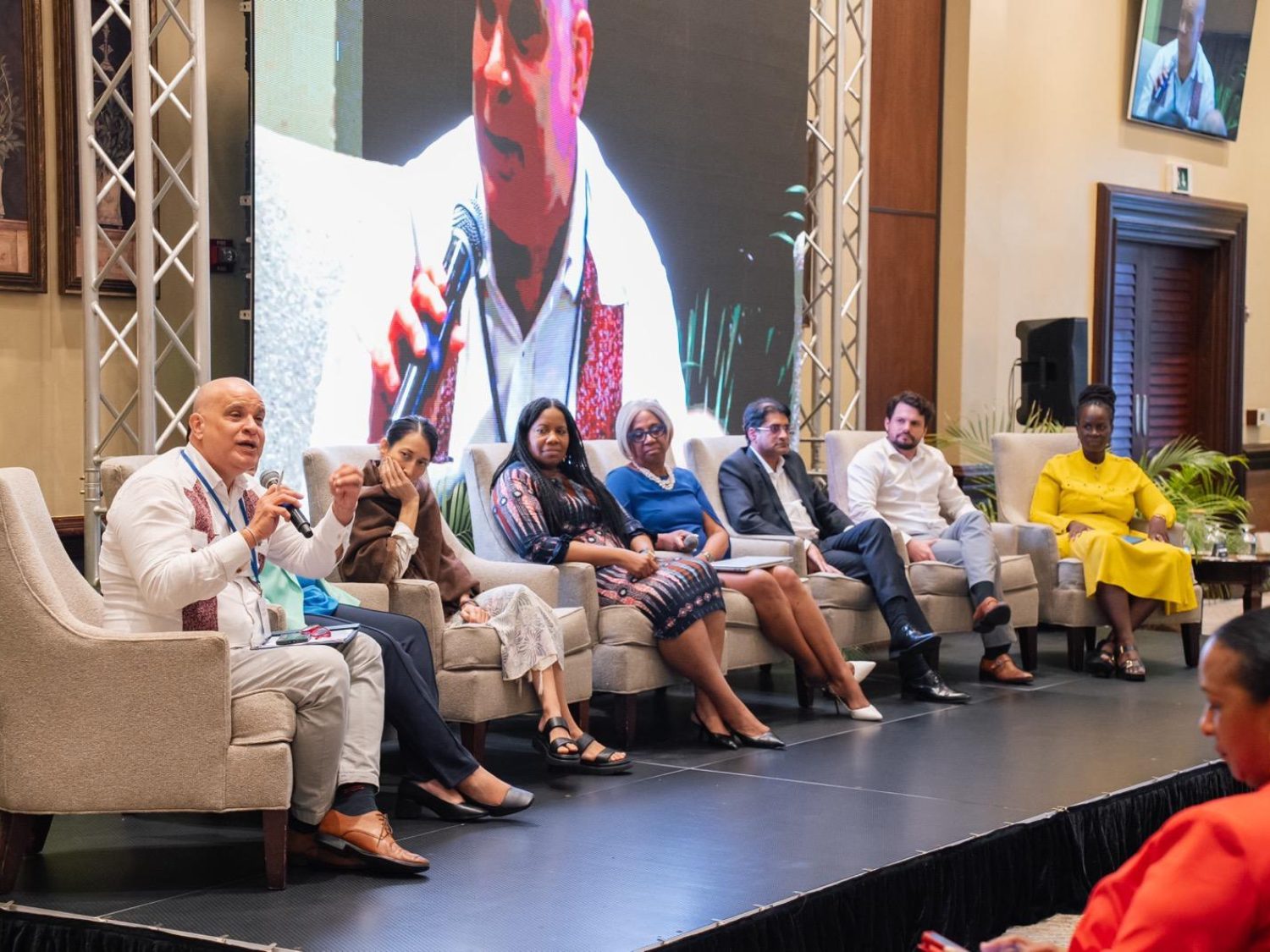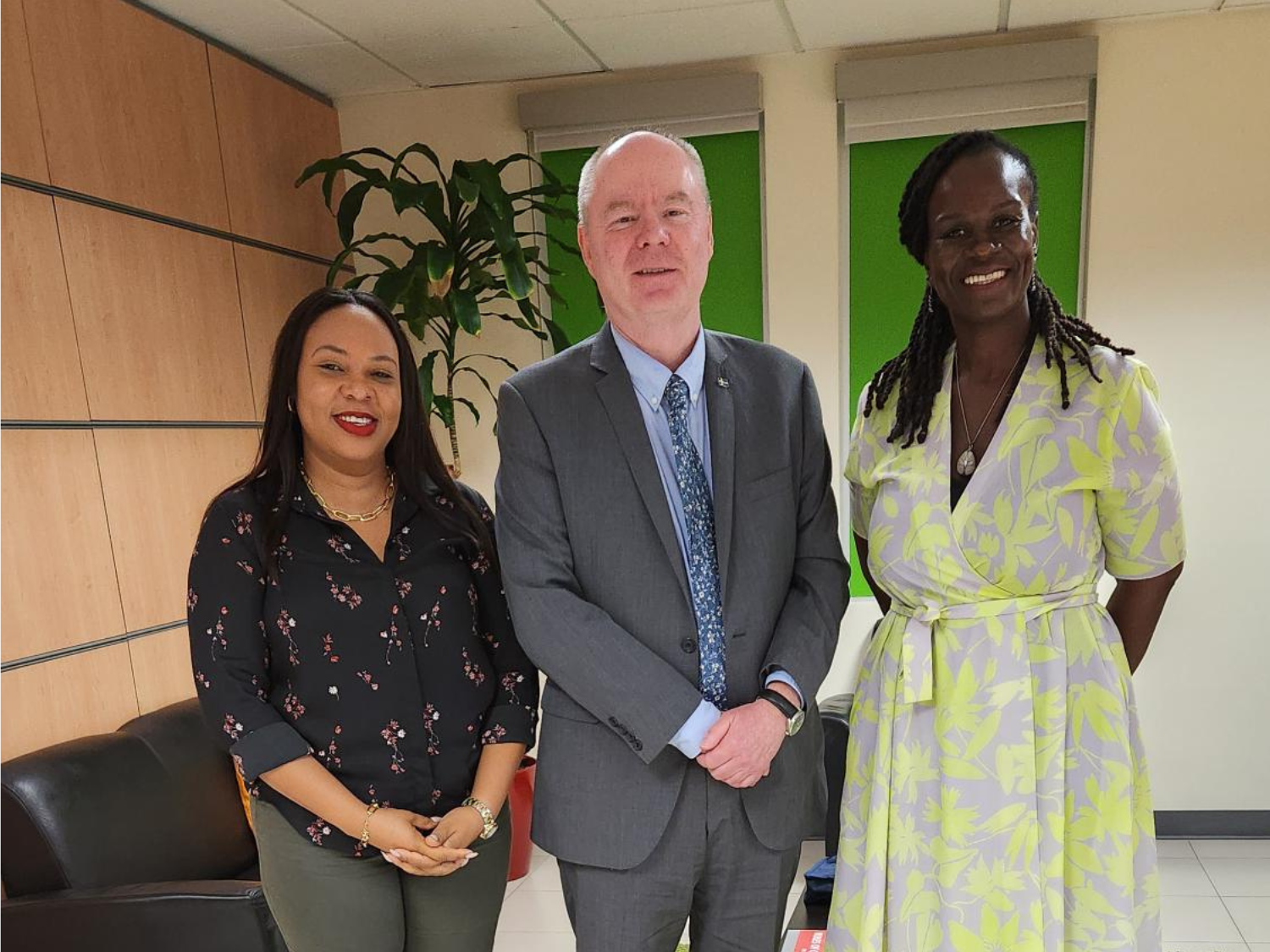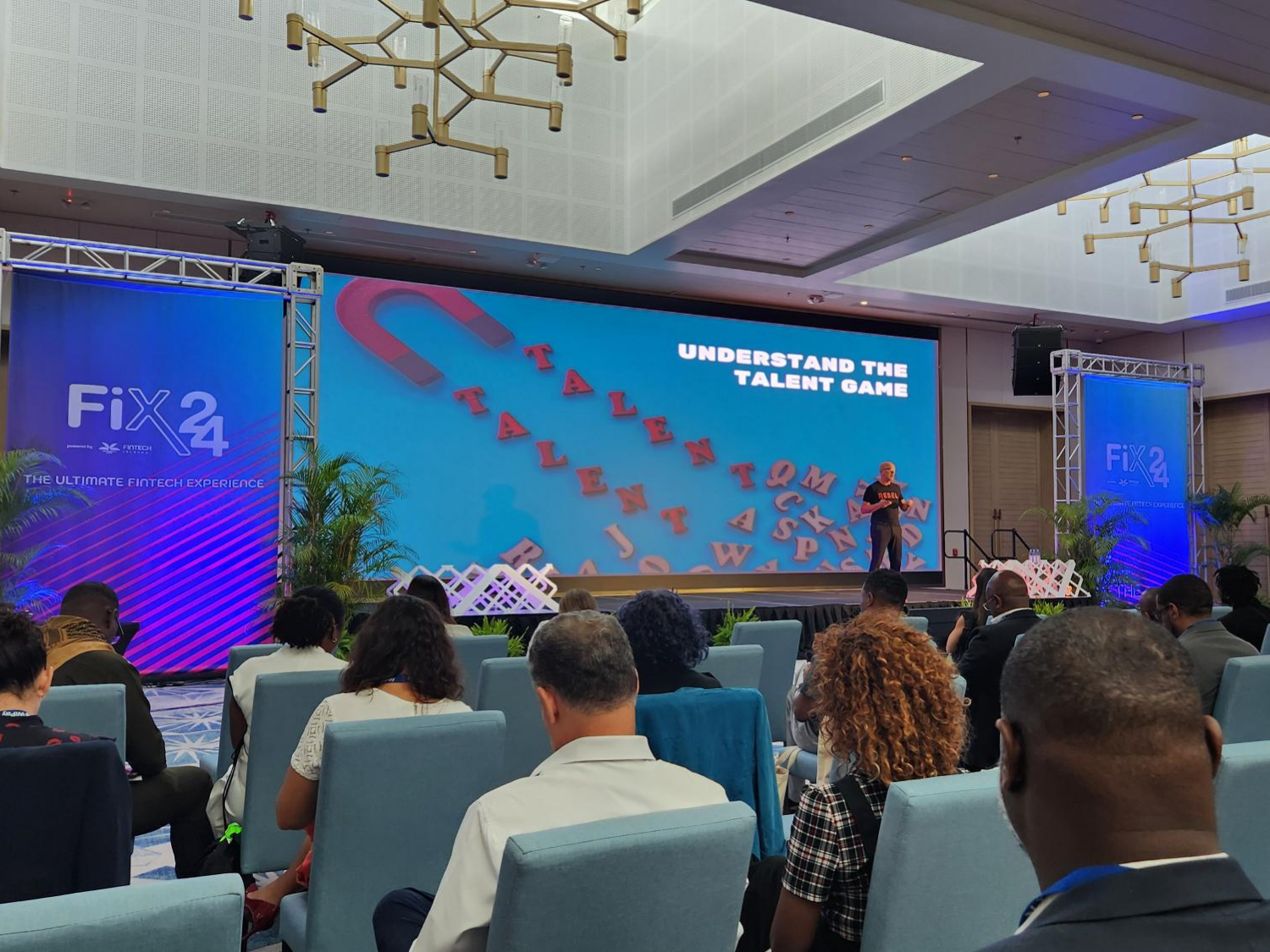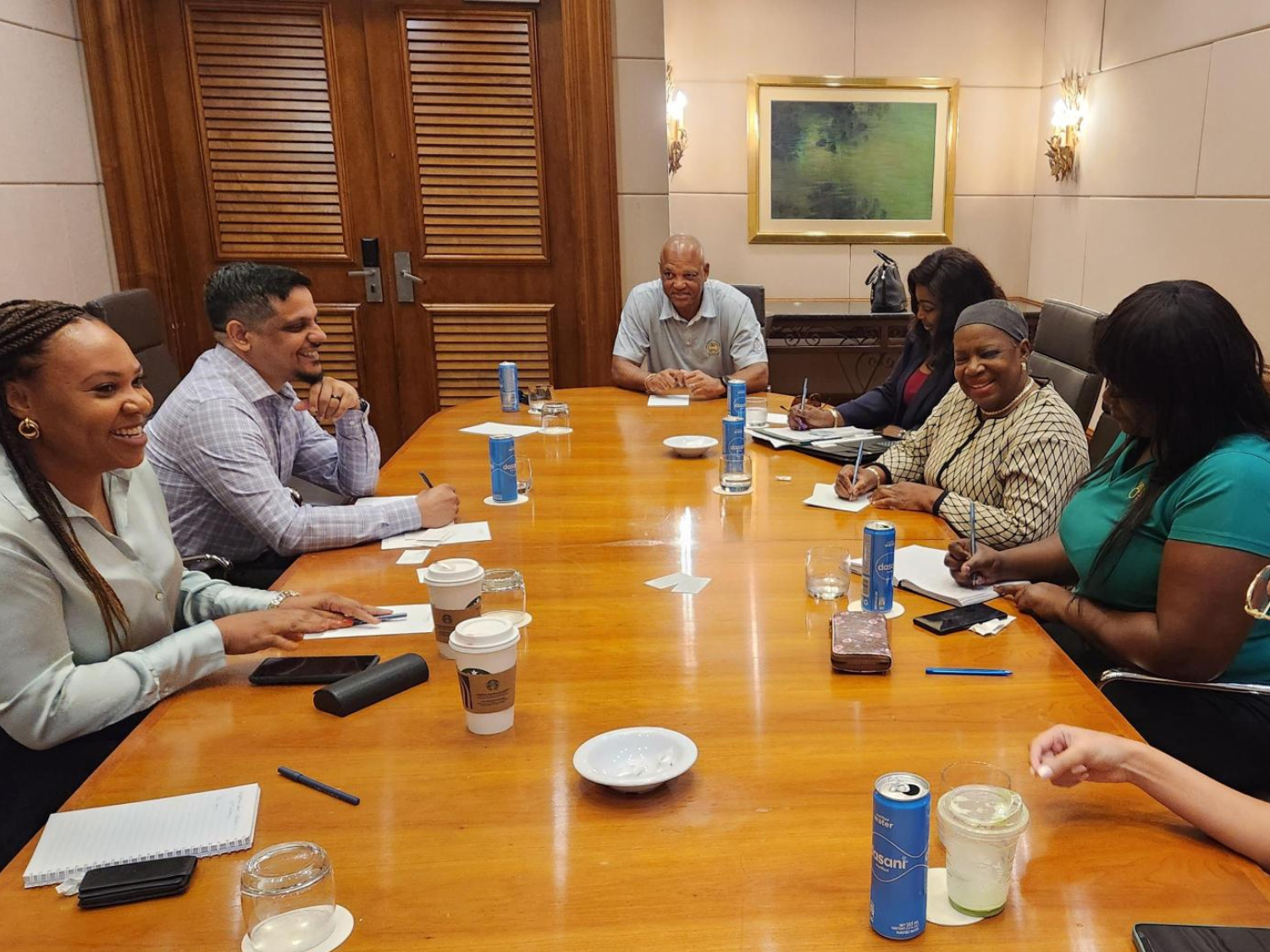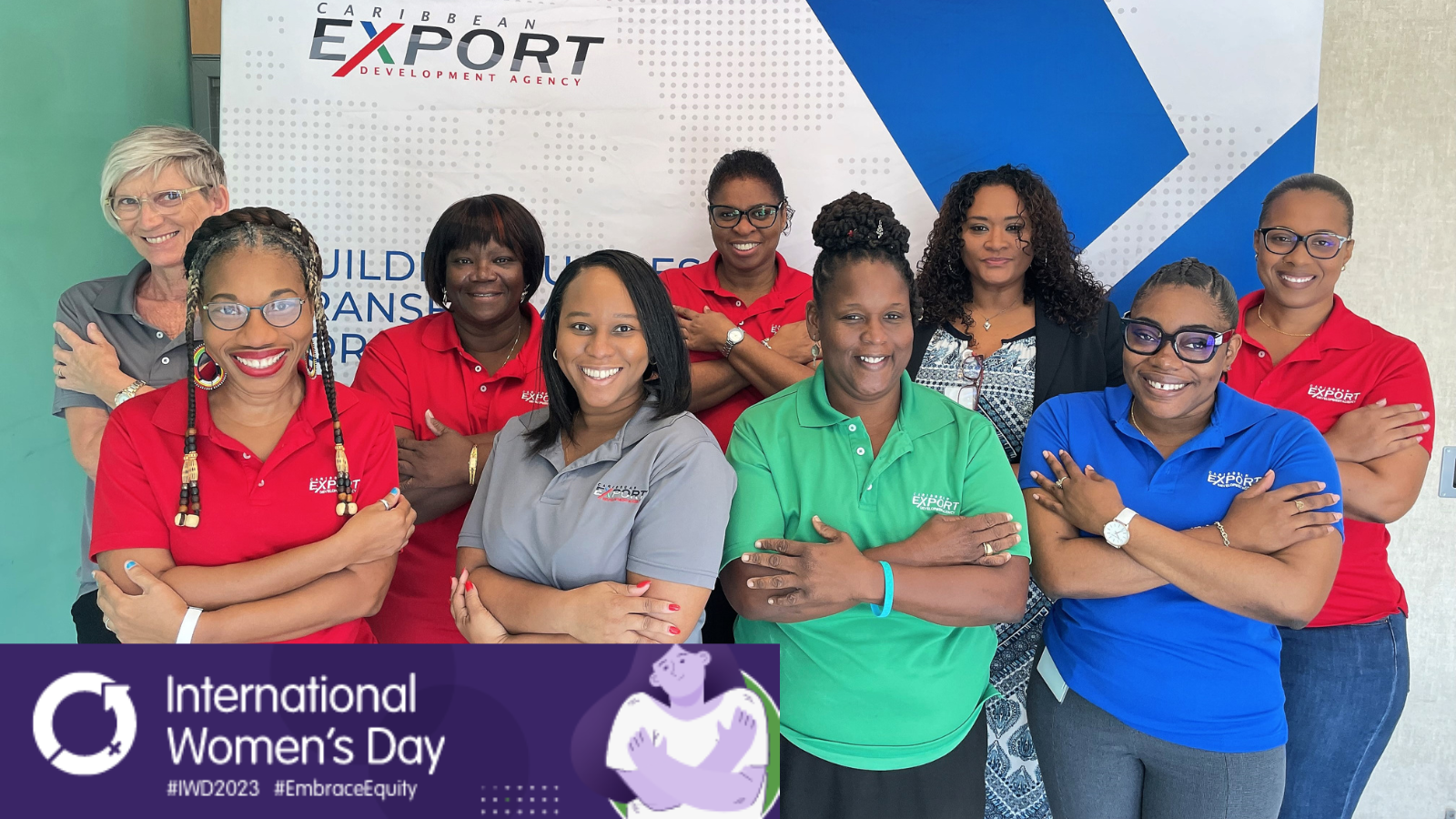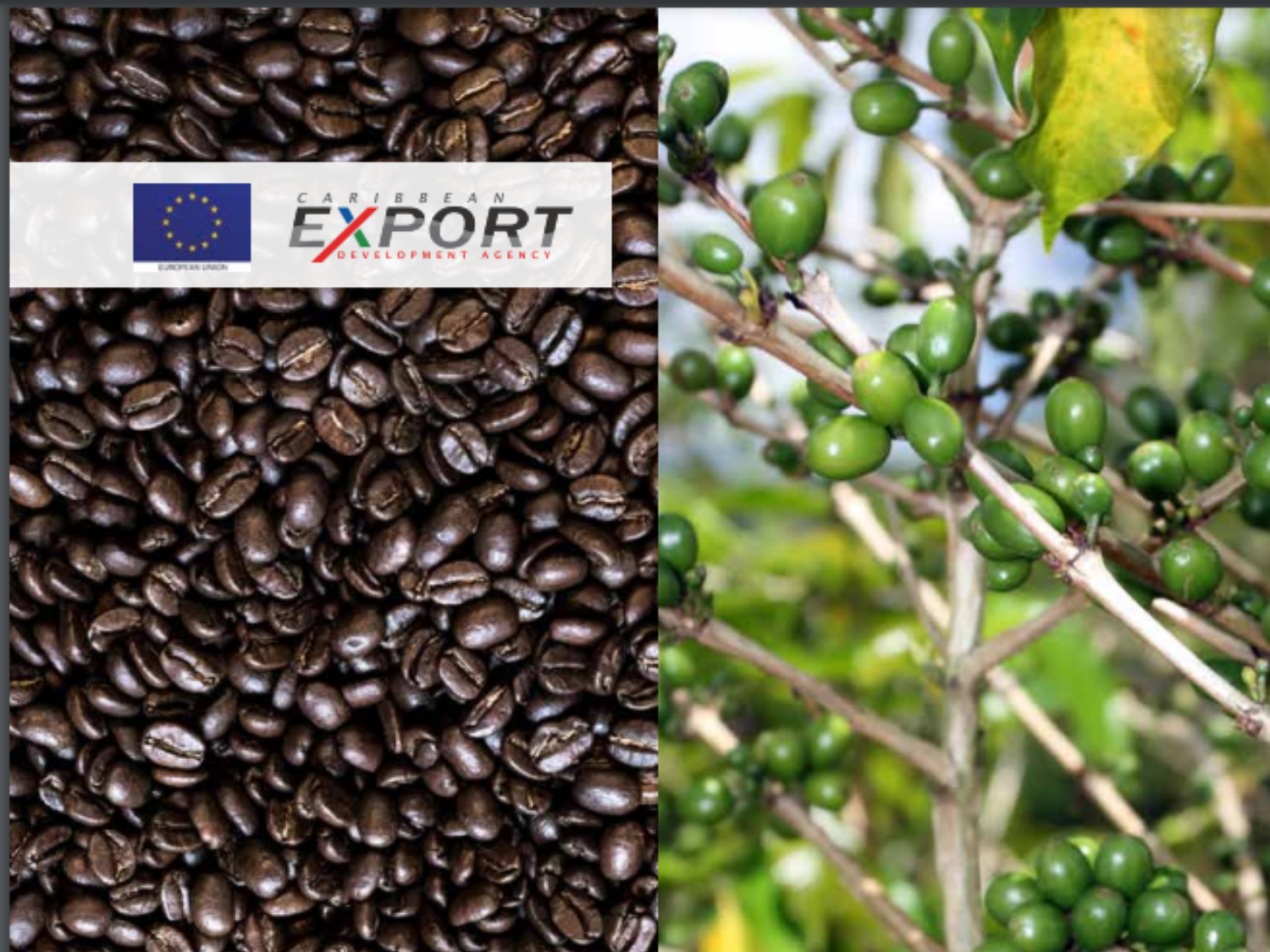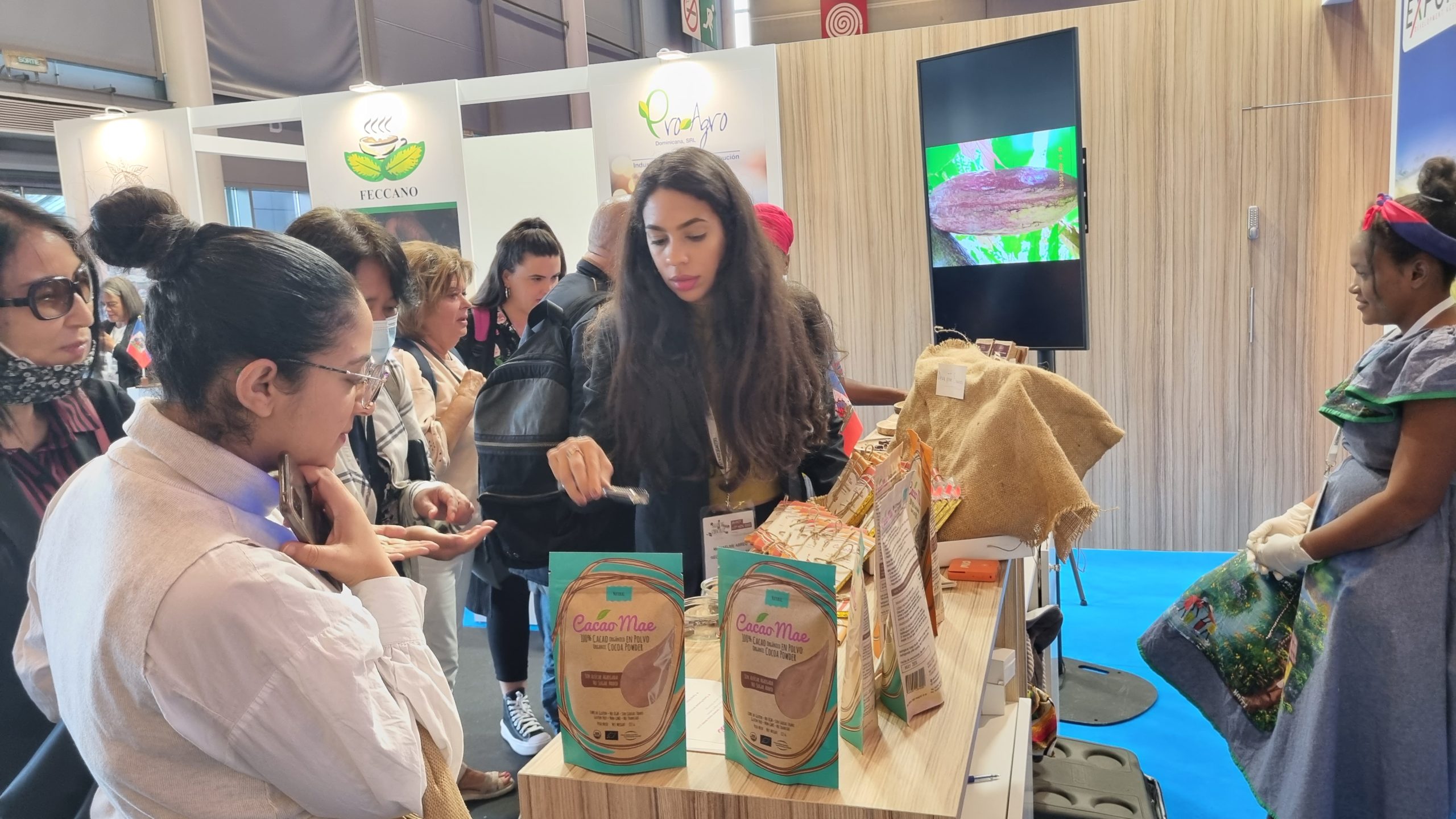The Green Climate Fund (GCF) Caribbean Regional Dialogue concluded last Friday on a high note with the Trade and Business Forum, a session that highlighted the critical role of the private sector in climate resilience and economic transformation. Led by Caribbean Export, this forum brought together key stakeholders to explore how trade and business can drive the region’s green transition.
Caribbean trade is evolving rapidly, with climate change and sustainability shaping new opportunities and challenges. In 2023, CARICOM recorded $40.2 billion in exports and $49.6 billion in imports, reflecting a trade deficit that underscores the need for greater economic resilience. Dr. Damie Sinanan, Executive Director of Caribbean Export, highlighted the importance of MSMEs, which comprise 70-85% of Caribbean economies, playing a crucial role in economic sustainability. He emphasized the growing opportunities in green trade, particularly in agriculture, clean energy, and digital transformation, while noting the pressing need for supply chain modernization, sustainable production, and intra-regional trade expansion to remain competitive.
The Caribbean has immense potential to lead in sustainable industries, particularly in clean energy, ocean industries, and the Blue Economy. However, logistical barriers, regulatory gaps, and financing constraints continue to hinder progress. Discussions at the forum focused on the urgent need for sustainable agriculture, with CARICOM aiming to cut food imports by 25% by 2030, requiring significant investment in climate-smart agriculture, organic farming, and technology adoption. Agriculture remains a critical employer in the region, with employment rates as high as 30% in Guyana, 25% in Dominica, and 18% in Jamaica. In addition, digital transformation is emerging as a crucial enabler of the green economy, with technologies like AI, blockchain, and IoT improving efficiency and transparency in trade.
Access to green finance remains a major challenge, and financial institutions, including Republic Bank, Belize Development Bank, CARICOM Development Fund (CDF) and the Caribbean Development Bank (CDB), shared insights on innovative financial instruments that could help businesses transition to sustainable trade models. The private sector must be at the forefront of climate adaptation and mitigation efforts. Strategic investment is key, and businesses must leverage regional and global funding opportunities, including the Green Climate Fund’s financing mechanisms provided via accredited partners to adopt greener practices. Regulatory reform is also critical, as governments need to finalize policies and incentives that encourage businesses to invest in sustainable industries. The forum emphasized that public-private collaboration is essential, with the private sector working alongside governments, financial institutions, and development agencies to accelerate the green transition.
One of the biggest challenges for Caribbean businesses is accessing affordable and innovative financing for green initiatives. The Green Climate Fund (GCF) presented successful case studies, such as the Accelerating Solar Action Program in Ghana and the Mirova Sustainable Land Fund, demonstrating how concessional financing can drive private sector investment in climate resilience. Efforts to provide additional financing options alongside strategies to encourage green business growth were explored. Caribbean Export’s initiatives, including Green Transition Grants, Green Energy Audits, and sustainability training, were highlighted as key resources for businesses ready to embrace sustainability. Further, CDF shared a number of initiatives currently being implemented to provide greater access to finance for the private sector.
As the forum concluded, one key message stood out: the time for action is now. Businesses must embrace the green transition to remain competitive in the global economy. Governments need to implement supportive policies to enable trade and investment in climate-friendly industries. Financial institutions must expand green financing solutions to help businesses scale their sustainability efforts. Regional collaboration is essential—CARICOM nations must work together to create an enabling environment for sustainable trade and investment.
The Trade and Business Forum set the stage for deeper engagement between public and private sector leaders to drive economic resilience in the Caribbean. Through trade, investment, and partnerships, the region can not only adapt to climate change but also thrive in the green economy. Caribbean Export remains committed to empowering businesses, unlocking trade opportunities, and fostering a sustainable economic future for the region.
